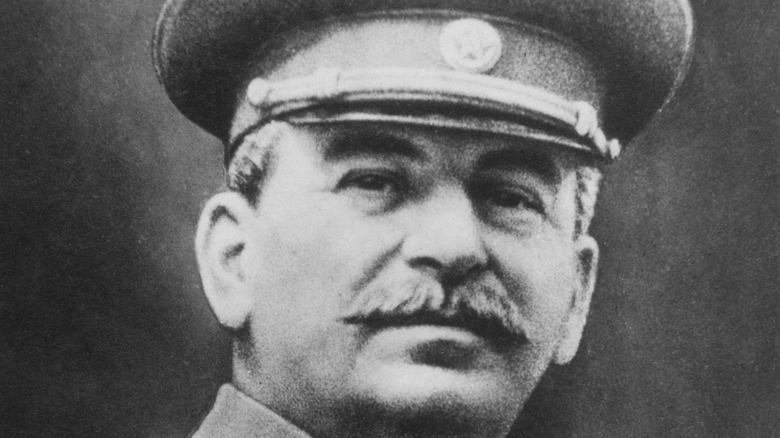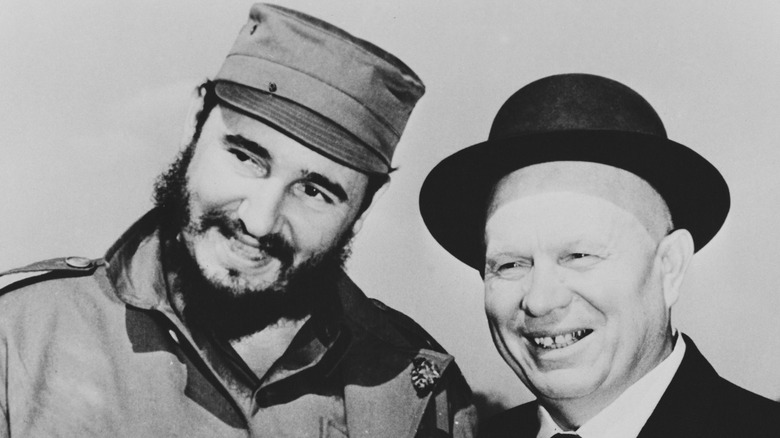What Really Happened After Joseph Stalin Died?
While in practice, Vladimir Lenin was far from a humanitarian ruler, even he recognized the danger posed by Joseph Stalin as the potential leader of the Soviet Union. While the two worked together in overthrowing the Czar and the following provisional government, they frequently found themselves at odds on both a personal and ideological basis. Even on his deathbed, Lenin compiled a series of recommendations for how the party should carry on, including the possible necessity of Stalin's removal (via Britannica).
Lenin's "last will" never saw public release until decades later, though, and after forcing Leon Trotsky out of the country, Stalin assumed control. His reign is infamous for having led to the deaths of thousands via direct execution and deportation to Siberia, while millions died of starvation. When Nazi Germany invaded Poland, Stalin was not far behind in invading the latter, and after World War II, he exercised de facto control over most of eastern Europe. Ironically, his reign of terror was ultimately his undoing, as the doctors he had ostracized and threatened repeatedly were not present when he suffered a stroke in 1953. From his death in May until September, the Soviet Union was under the nominal direction of five prominent political figures.
While Khrushchev wished to help his people, the results of his efforts were mixed at best
Among these leaders was the brutal Levrentiy Beria, who was gaining substantial influence in this regard before Nikita Khrushchev superseded him, becoming first secretary in September. In December, Beria was executed for his substantial past of murder and rape, and the remaining challengers had more or less backed down by then (via History Today). While he was loyal to his country, its ideology, and to Stalin while the latter was alive, Khrushchev's disdain for his predecessor was clear when he renamed Stalingrad as Volgograd and had Stalin's body removed from public view in 1961.
Though the public did not get to hear his words on the matter, Khrushchev leveled an impassioned denouncement of Stalin in 1956 (via The Guardian). He followed this with the additional mass removal of Stalin statues and memorials. This was at least partial justice for not only Stalin's pre-war victims but the citizens of Leningrad and Soviet soldiers captured by the Germans, whom Stalin regarded as upstarts and traitors (via History). Khrushchev's own reputation was marred by his bloody suppression of revolts in Hungary and Czechoslovakia. However, many of his other policies — such as his disastrous attempt to boost Soviet food production with corn — were intended to benefit the Soviet people in the long term rather than secure his own power.

